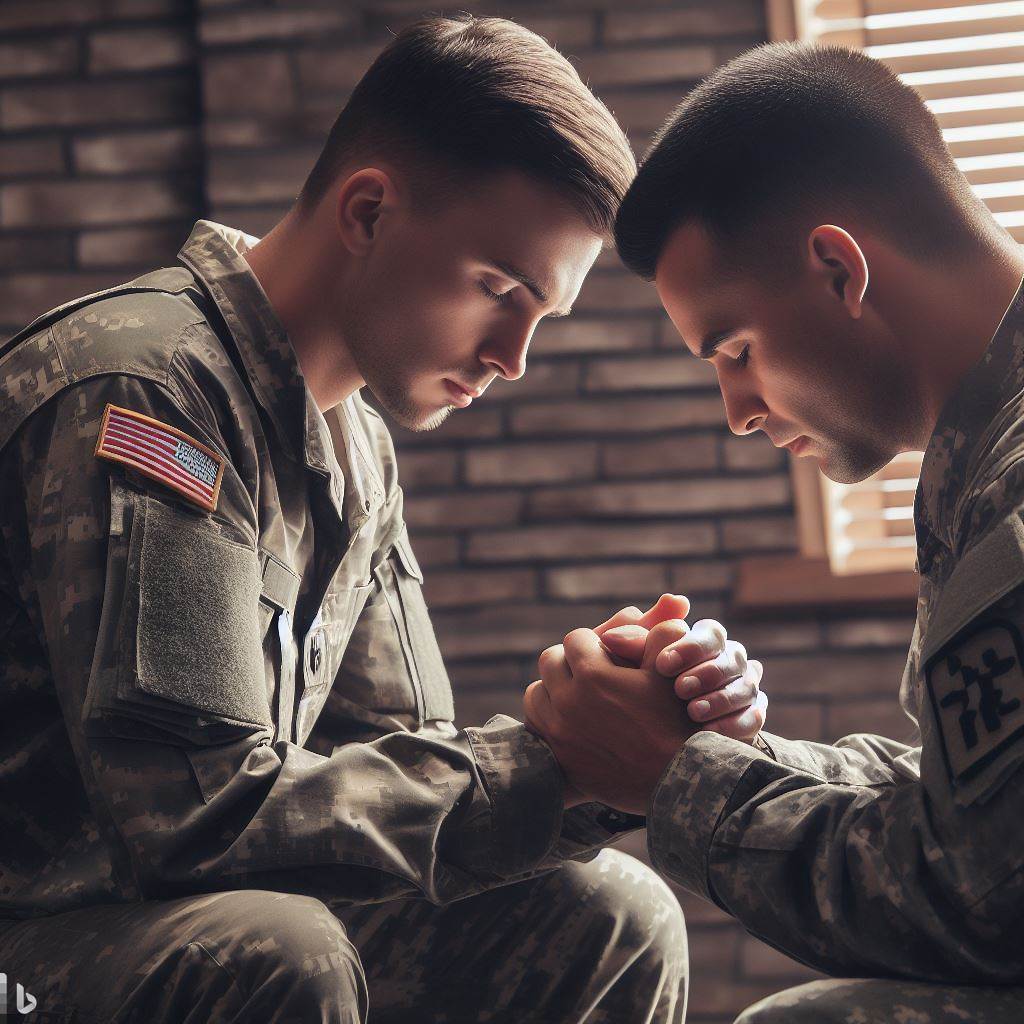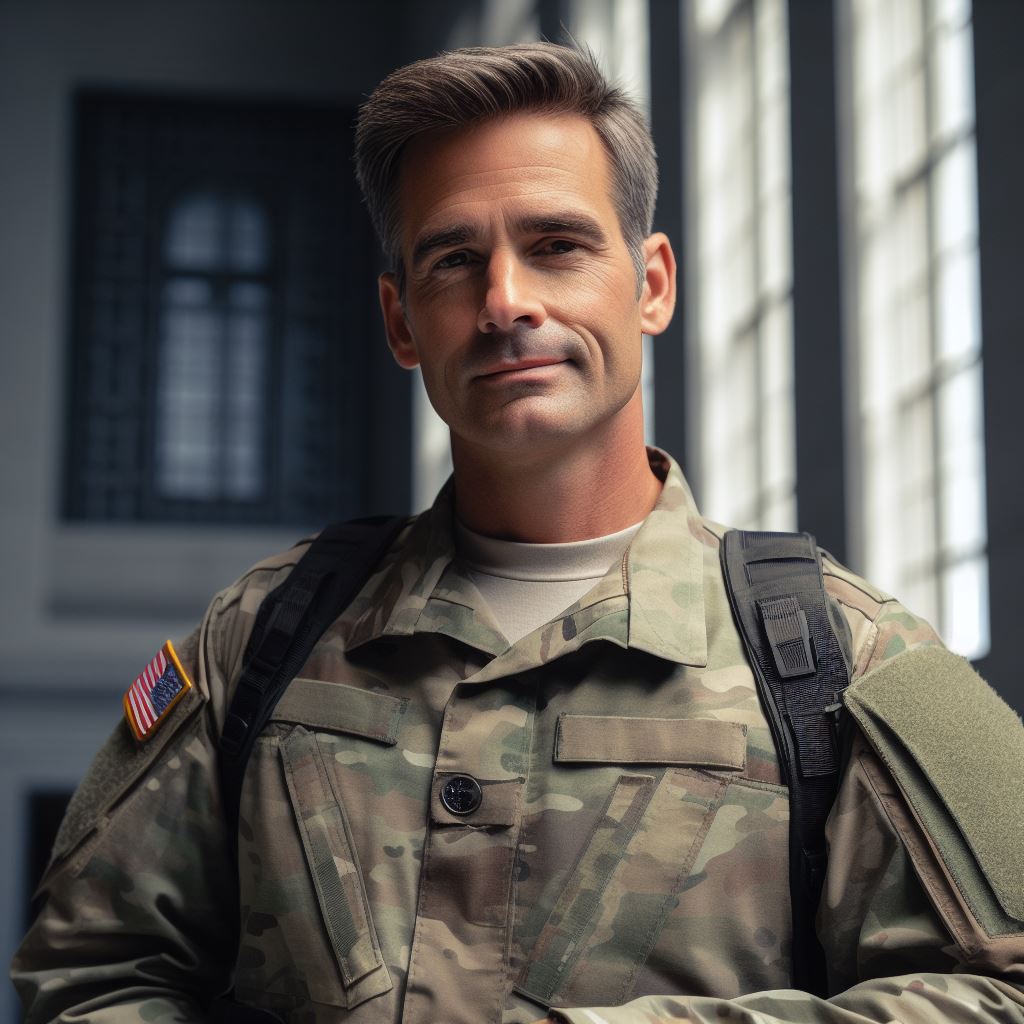Introduction
The U.S. Marine Corps is a prestigious branch of the military known for its exceptional training and elite reputation.
With a rich history that dates back to 1775, the Marines have been an integral part of American military operations.
As an elite force, the Marine Corps plays a crucial role in national defense and global missions.
Their specialized training and expertise make them uniquely equipped to handle a wide range of challenges.
From amphibious assaults to rapid deployment, Marines are trained to be versatile and adaptable in any situation.
The importance of the Marine Corps lies in its ability to project power and maintain readiness.
The Marines are often the first to arrive in a conflict zone, providing support and security.
Their distinct mission sets them apart from other branches and showcases their commitment to excellence.
Being part of the Marine Corps is not just a job, but a way of life.
The sense of camaraderie and dedication runs deep among Marines, creating a strong bond within the force.
Through rigorous physical and mental training, Marines develop a mentality of discipline, loyalty, and selflessness.
Basically, the U.S. Marine Corps is an elite force within the military, playing a vital role in national security and global operations.
Their rigorous training, distinct mission, and unwavering dedication make them a force to be reckoned with.
The Marines embody the values of honor, courage, and commitment, and continue to serve as an inspiration to all.
History of the U.S. Marine Corps
Establishment and early years
- The United States Marine Corps (USMC) was founded on November 10, 1775, as a branch of the naval forces.
- During the American Revolution, Marines often served as shipboard soldiers and fought in numerous naval battles.
- The Barbary Wars in the early 1800s marked the first major conflict where the Marine Corps proved its capabilities.
- Marines played a crucial role in capturing the Tripolitan city of Derna, earning the famous phrase “to the shores of Tripoli.”
- The Marine Corps’ adaptability and flexibility were demonstrated as they carried out both amphibious and land operations.
Key contributions and involvement in major conflicts
- The first major involvement of the Marine Corps was in the War of 1812 against the British.
- During the Mexican-American War, Marines participated in several key battles, including the storming of Chapultepec Castle.
- The Marines also made significant contributions during the Civil War, safeguarding Union naval vessels and participating in land campaigns.
- The Spanish-American War saw Marines in action in Cuba, Puerto Rico, and the Philippines.
- World War I marked the Marine Corps’ first large-scale deployment overseas, fighting alongside allied forces in Europe.
Development of the Marine Corps as an elite force
- In the early 20th century, Marine Corps leaders recognized the need to transform the organization into an elite force.
- The Marine Corps developed a reputation for toughness, discipline, and aggressive fighting tactics through rigorous training.
- Marines embraced the ethos of “every Marine a rifleman,” emphasizing the importance of basic infantry skills.
- The Marine Corps played a vital role in World War II, especially in the Pacific theater, where they conducted amphibious assaults.
- The iconic image of Marines raising the American flag on Iwo Jima further solidified their status as an elite fighting force.
- Following World War II, the Marine Corps continued to evolve, emphasizing rapid deployment capabilities and expeditionary warfare.
- During the Korean War, Marines faced intense combat against a well-trained enemy, showcasing their resilience and adaptability.
- The Vietnam War presented new challenges, as Marines undertook counterinsurgency operations in a hostile environment.
- The Marine Corps’ commitment to readiness and innovation was showcased during Operations Desert Shield and Desert Storm in the Gulf War.
- In the 21st century, the Marine Corps has been at the forefront of the War on Terror, conducting operations in Iraq and Afghanistan.
Essentially, the U.S. Marine Corps has a rich history of service, dating back to its establishment in 1775.
From their early involvement in naval battles to their role as an elite fighting force, Marines have consistently demonstrated their valor and dedication.
The Marine Corps’ commitment to training, adaptability, and innovation has allowed them to evolve and succeed in various conflicts across the globe.
Today, the USMC continues to uphold its reputation as an elite force within the U.S. military, ready to face any challenges that may arise.
Training and Selection Process
Rigorous physical and mental requirements
- The U.S. Marine Corps sets high standards for the physical and mental capabilities of its recruits.
- Physical fitness is crucial, with rigorous tests in areas such as endurance, strength, and combat skills.
- Mental toughness is equally important, as Marines must be able to persevere in challenging situations.
- Recruits must pass a thorough medical exam to ensure they are healthy and fit for service.
Basic Marine Corps Recruit Training (boot camp)
- Upon enlisting, all prospective Marines must complete basic training, commonly known as boot camp.
- Boot camp is an intense 12-week program that prepares recruits for a career in the Marine Corps.
- During this training, recruits learn essential military skills, discipline, and teamwork.
- Physical conditioning is a significant component, as recruits undergo strenuous exercises and obstacle courses.
- They also receive classroom instruction on military tactics, weapons handling, and first aid.
Specialized training for different roles in the Marine Corps
- After completing boot camp, Marines proceed to specialized training based on their chosen occupational field.
- Training programs vary depending on the specific role, such as infantry, aviation, logistics, or intelligence.
- These specialized courses focus on honing the necessary skills and knowledge for each respective job.
- For example, infantry Marines undergo extensive combat training, including marksmanship and tactical maneuvering.
- Aviation Marines receive training in aircraft maintenance, operations, and navigation.
- Logistics Marines learn about supply chain management, transportation, and warehousing.
- Intelligence Marines are trained in gathering and analyzing information to support military operations.
- Regardless of the specialization, all Marines continue to develop their physical fitness and mental resilience.
Generally, the U. S. Marine Corps maintains an elite force through a rigorous training and selection process.
Prospective Marines must meet demanding physical and mental requirements, ensuring they possess the necessary attributes for service.
Basic training, or boot camp, further prepares recruits by instilling discipline, teamwork, and military skills.
Following boot camp, Marines undergo specialized training in their chosen occupational field, honing their expertise for various roles within the Marine Corps.
Whether in combat, aviation, logistics, or intelligence, Marines continue to enhance their physical and mental capabilities throughout their careers.
Roles and Missions
Expeditionary force and its importance in crisis response
- The U.S. Marine Corps plays a crucial role as an expeditionary force, ready to deploy rapidly in times of crisis.
- Being expeditionary means they are capable of conducting operations in diverse environments and conditions.
- Whether it’s a natural disaster or a conflict, the Marine Corps is prepared to provide necessary assistance.
- Their ability to quickly respond to crisis situations can make a significant difference in saving lives and restoring order.
- The Marines’ agility and adaptability allow them to operate effectively in any part of the world, from desert to jungle.
Amphibious assault capabilities
- One of the key roles of the Marine Corps is to conduct amphibious assaults, attacking from sea to land.
- This capability enables them to rapidly establish a presence in areas where traditional land forces cannot reach directly.
- Amphibious assaults require intricate planning and coordination to ensure a successful landing operation.
- The Marines use various means, including amphibious assault vehicles and landing craft, to transport troops and equipment.
- Their expertise in amphibious operations has been proven in historical battles, such as the Pacific island-hopping campaign during World War II.
Close air support and aerial combat
- The Marine Corps maintains a formidable air power, providing close air support to ground forces.
- This involves engaging enemy targets in close proximity to friendly forces to minimize collateral damage.
- The Marines’ aircraft, including fighter jets and attack helicopters, are equipped with advanced weaponry systems.
- Aerial combat is another important mission for the Marine Corps, protecting airspace and engaging hostile aircraft.
- Their pilots undergo rigorous training to excel in dogfights and air-to-air combat scenarios.
Special operations and reconnaissance
- The Marine Corps has highly specialized units known as Marine Raiders, capable of conducting special operations.
- These elite forces undertake clandestine missions, such as counterterrorism and hostage rescue operations.
- Marine Reconnaissance units provide vital intelligence through covert reconnaissance and surveillance activities.
- Special operations and reconnaissance are vital in gathering crucial information and disrupting enemy activities.
- The Marine Corps’ special operations units are trained to operate in small teams and behind enemy lines.
Ultimately, the U.S. Marine Corps is an elite force within the military, fulfilling various roles and missions.
As an expeditionary force, they swiftly respond to crises, offering assistance when it’s most needed.
Their expertise in amphibious assaults allows them to establish a presence in inaccessible areas.
Furthermore, they provide close air support and engage in aerial combat, ensuring air superiority.
Finally, the Marine Corps’ special operations and reconnaissance units carry out covert missions, gathering intelligence and disrupting enemy activities.
The Marine Corps’ versatile capabilities make them an indispensable force in defending national interests and promoting global security.
Read: Networking Opportunities for Security Professionals in the USA

Core Values and Ethos
Honor, courage, and commitment
The U.S. Marine Corps is built on a foundation of core values that guide every aspect of their operations.
Honor is the bedrock upon which the Marine Corps is built. It is a commitment to the highest ethical standards.
Courage is an essential virtue in the Marine Corps. Marines are expected to face fear and adversity head-on.
Commitment is the unwavering dedication to the Marine Corps and its mission, even in the face of adversity.
Semper Fidelis: always faithful
“Semper Fidelis,” or “always faithful,” is the motto of the Marine Corps and a guiding principle for all Marines.
It represents the loyalty and devotion that Marines have for each other, their Corps, and their country.
Being “always faithful” means being dependable, reliable, and steadfast in all aspects of a Marine’s life.
Importance of leadership and discipline in the Marine Corps
The Marine Corps places great importance on leadership and discipline as they are the backbone of a successful force.
Leadership is the ability to influence and inspire others to achieve a common goal, and it is the responsibility of every Marine.
Discipline is the foundation of order and structure within the Marine Corps. It ensures unity and obedience to commands.
Marines are expected to exhibit self-discipline, accountability, and the ability to make tough decisions under pressure.
Transform Your Career Today
Unlock a personalized career strategy that drives real results. Get tailored advice and a roadmap designed just for you.
Start NowRead: Balancing Vigilance and Courtesy: A U.S. Security Guard Challenge
Find Out More: How to Become a Detective in the USA: Step-by-Step Guide
Notable Units and Achievements
Marine Expeditionary Units (MEUs)
- MEUs are a force in readiness, capable of responding rapidly to a variety of missions.
- They consist of smaller units such as infantry, aviation, logistics, and command elements.
- MEUs have successfully carried out numerous humanitarian and combat operations globally.
Marine Corps Special Operations Command (MARSOC)
- MARSOC is comprised of highly trained Marines who undertake complex and specialized missions.
- Their capabilities include reconnaissance, direct action, and counter-terrorism operations.
- MARSOC has played a crucial role in enhancing the Marine Corps’ capabilities in unconventional warfare.
Medal of Honor recipients and other notable Marines
- The Medal of Honor is the highest military decoration awarded to individuals who display extraordinary bravery.
- Many Marines have been recipients of this prestigious award for their valor in combat.
- Notable Marines such as John Basilone, Chesty Puller, and Kyle Carpenter have left a lasting legacy of heroism.
- Their courage and selflessness inspire future generations of Marines to strive for excellence.
- These individuals epitomize the values of the Marine Corps and serve as role models for all Marines.
The U.S. Marine Corps, an elite force, boasts highly trained individuals, notable units, and outstanding achievements.
The Marine Expeditionary Unit (MEU) stands out as a swift, versatile responder, excelling in diverse missions globally.
The Marine Corps Special Operations Command (MARSOC) adds depth, with select Marines trained for complex missions like reconnaissance and counter-terrorism.
Noteworthy individuals within the Marine Corps, recipients of the Medal of Honor, include legends like John Basilone and Kyle Carpenter, symbolizing exceptional bravery.
Their heroic actions embodyvalues, inspiring future generations.
These units and individuals exemplify the Marine Corps’ excellence and commitment.
Their remarkable achievements and unwavering dedication solidify the Marine Corps as an elite force within the military, showcasing the principles that define its greatness in just 180 words.
Read: Veterans Transitioning to Security Roles: A Guide for the U.S. Market
Challenges and Sacrifices
Physical and mental hardships faced by Marines
- Marines endure grueling physical training to prepare them for combat situations.
- They face intense mental challenges, such as making split-second decisions under pressure.
- The demanding nature of their missions pushes them to their physical and mental limits.
- Marines must constantly adapt to changing environments and cope with harsh weather conditions.
- Their dedication and resilience enable them to overcome these hardships and excel in their roles.
Frequent deployments and time spent away from family
- Marines are often deployed for extended periods to different parts of the world.
- They sacrifice precious time with their loved ones to fulfill their duty to the nation.
- Being away from family for months or even years can strain relationships and cause emotional distress.
- Physical distance can make it challenging for Marines to support their families during difficult times.
- Despite these challenges, Marines remain committed to their missions and the defense of their country.
Emotional toll and the importance of support systems
- Experiencing traumatic events and witnessing the horrors of war can take an immense emotional toll.
- Marines often face post-traumatic stress disorder (PTSD) and other mental health challenges.
- Having a strong support system, including fellow Marines and family, is crucial for their well-being.
- Support systems provide a space for Marines to share their experiences and access counseling services.
- Recognizing and addressing the emotional needs of Marines is vital in maintaining their overall health.
In the end, the U.S. Marine Corps faces numerous challenges and sacrifices in their role as an elite force of the military.
They undergo physical and mental hardships, including rigorous training and making critical decisions under pressure.
Frequent deployments and time away from family can strain relationships and cause emotional distress.
However, with their unwavering dedication and support systems in place, Marines continue to excel in their missions.
It is crucial for society to acknowledge the sacrifices made by these brave men and women and provide them with the support they need for their overall well-being.
Read: A Day in the Life of a U.S. Army Soldier: Real Stories
Delve into the Subject: How Technology is Changing the Role of Security Guards in the USA
Conclusion
Recap of the U.S. Marine Corps as an elite force
Throughout this section, we have explored the U.S. and its status as an elite force within the military.
We have learned about their rigorous training, specialized skills, and their reputation for being the first to fight in any conflict.
The Marine Corps’ ongoing role in defending the nation
The Marine Corps plays a vital role in defending the nation.
From amphibious assaults to providing humanitarian aid, the Marine is always prepared to answer the call and protect American interests at home and abroad.
Appreciation for the dedication and sacrifices of Marines
To summarize it is important to recognize and appreciate the dedication and sacrifices made by Marines.
They endure grueling training, separation from their families, and put their lives on the line to serve and protect our country. Their selflessness and commitment to duty deserve our utmost respect and gratitude.
As we conclude this section, let us remember the U.S. Marine Corps as an elite force, always ready to defend our nation, and let us honor and support the brave men and women who serve as Marines.
[E-Books for Sale]
The Big Book of 500 High-Paying Jobs in America: Unlock Your Earning Potential
$19.99 • 500 High-Paying Jobs • 330 pages
Explore 500 high-paying jobs in America and learn how to boost your career, earn more, and achieve success!
See All 500 High-Paying Jobs of this E-Book
1001 Professions Without a Degree: High-Paying American Jobs You Can Start Now
$19.99 • 1001 Professions Without a Degree • 174 pages
Discover 1001 high-paying jobs without a degree! Unlock career tips, skills, and success strategies for just $19.99!




